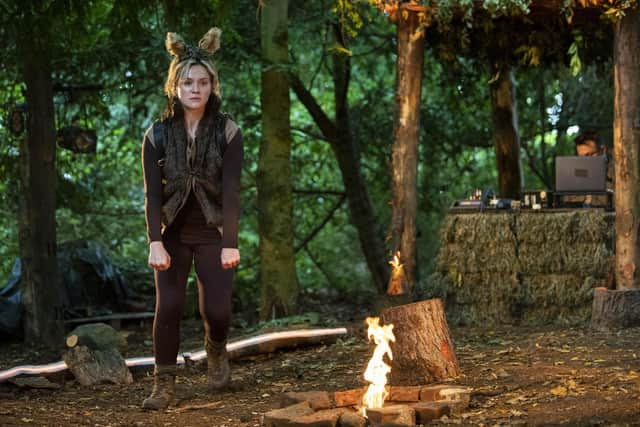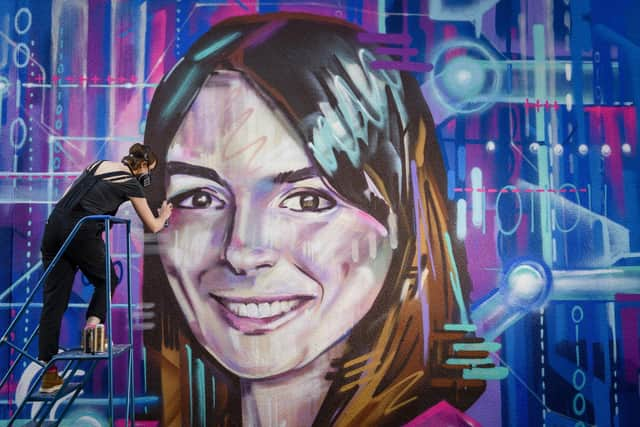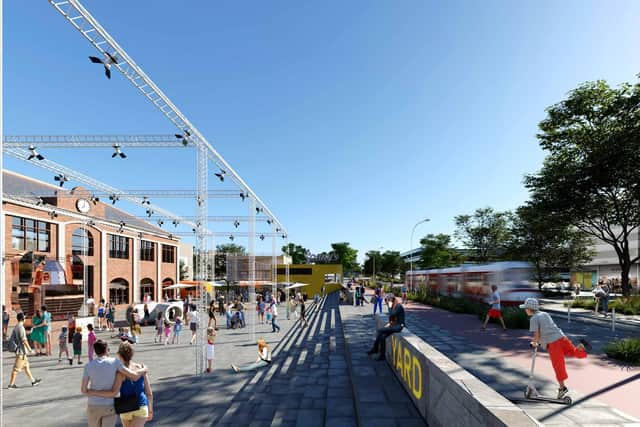Edinburgh’s festivals urged to 'disperse’ from city centre to local parks to spread benefits of annual events
The development of new sites is being urged to tackle concerns in outlying communities that existing events are not inclusive or accessible.
The Edinburgh University-funded study has recommended they are pursued as an alternative to free ticket giveaways for shows in the city centre and traditional community programmes.


Advertisement
Hide AdAdvertisement
Hide AdResearch carried out across the city during the pandemic found demand for live music, drama and dance shows, as well as food and drink events, outwith the city centre.
It is hoped the new festival hubs would celebrate the diverse voices that make up local communities and culture across Edinburgh, as well as celebrate local stories drawn from the heritage of individual areas.
The study found the festivals were “loved and celebrated by communities around Edinburgh”, but also found widespread evidence in these areas of a perception of “not belonging” to them, and that they have been targeted more at tourists than people living in the city.
Other suggestions to help forge a greater “sense of belonging” among residents include helping local communities to produce, promote and perform in their own events, as well as the commissioning of new public works of art for outlying areas.


The study, which was also supported by the Edinburgh Festival Fringe Society and umbrella body Festivals Edinburgh, called for more effort to be made to promote existing cultural events in areas of low ticket-buying to help “embed” a new relationship with them.
The report, Mapping Cultural Dispersal, was drawn up in the wake of online and in-person workshops carried out last spring and summer in Moredun, Granton, Oxgangs, Wester Hailes, Muirhouse, Pilrig, Lochend, Craigentinny and Restalrig.
City centre crowds, congestion and “a sense of claustrophobia” were all cited as major barriers to participation in the festivals, along with the cost of public transport.
Advertisement
Hide AdAdvertisement
Hide AdThe research states: “We asked participants to tell us what they would do if they could programme a festival event for their community.


“We noted the powerful sense of identity that some of the communities we talked to feel for their neighbourhoods, and this was borne out in stories of deep connections with local heritage and valued spaces, as well as in enthusiasm for multicultural events that reflect multicultural communities, such as internationally-themed food or music events.
“Participants also told us that communities are most likely to support one another if they are invested in the programme, and this might take the form of organising, producing, performing, or promoting an event, as well as attending.
“Suggestions included music, comedy, dance, food and drink. Several participants spoke fondly of local ‘gala days’ and the city centre Fringe Sunday event held previously and suggested their return.
“Without exception, participants at each of the community hubs talked about ideas for outdoor events in green spaces both around the city and in their immediate locality, with each neighbourhood reporting multiple suitable green spaces in their area.
“These spaces were already felt to be flexible and accessible and therefore suitable for a range of activities that would engage diverse community audiences.
“Dispersing events as part of the festivals’ ticketed offer, rather than solely as or alongside targeted engagement, might help to reduce the sense of ‘othering’ reported by participants and replace it with a feeling of reciprocity and inclusivity between festivals and communities, where communities experience festival events and activities on their own terms without the sense that they are being siphoned away from the ‘core’ ticketed offer.”
Advertisement
Hide AdAdvertisement
Hide AdFestivals Edinburgh director Julia Amour said: We’re really pleased that this report highlights the appetite from communities across the city to see activities take place in their areas and to enjoy wider programmes.
“As we focus on the festivals’ revival and 75th anniversary after two devastating years for citizens and culture, we hope this will help interest funders and supporters in piloting new festival sites to see how viable models can be developed in future.
“Before the pandemic we were working with over 130 community groups. We’re excited to start to rebuild and renew those links.”
Lyndsey Jackson, deputy chief executive at the Fringe Society, said: “We’ve been involved and supported this research from the start, including providing access to our ticketing data over a three-year period.
"However, looking at potential new areas of the city is a long game. If we want to establish cultural hubs in other parts of the city, someone needs to underwrite that, certainly in the first few years.
“Fringe venues operate on thin margins, and have to have commercially viable models, as they are not supported financially. They would need to know that if they’re going to move into a new area of the city that there is an audience there. The thing that is most useful in this research is that there is a genuine desire to engage more meaningly with the festivals.”
A spokeswoman for the city council said: “As the world’s ‘Festival City,' Edinburgh welcomes exciting events and festivals all year-round which cater to all interests, faiths and families, meaning there is almost always something going on in the city. We welcome the findings of this report and take encouragement that Edinburgh festivals continue to be loved and celebrated by communities around Edinburgh.
Advertisement
Hide AdAdvertisement
Hide Ad“The greater spread of activity across the city is one of the ways we’ve been looking at how we can sustainably manage events in the city in the years ahead.
“We want all of our communities to share in the city’s success and by anticipating some of the issues that we’ve grappled with in previous years, we can take steps to ensure we’re better prepared to address.
"This report further supports our planning to make sure that in the years ahead we continue to focus on our people, place and environment.”
Comments
Want to join the conversation? Please or to comment on this article.

